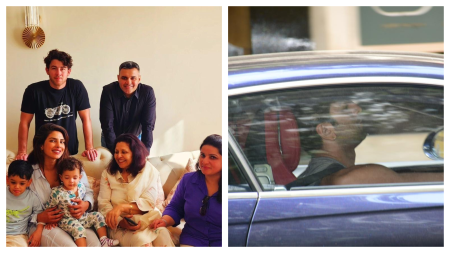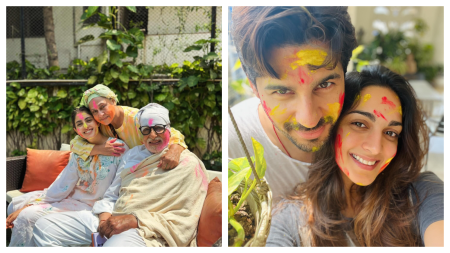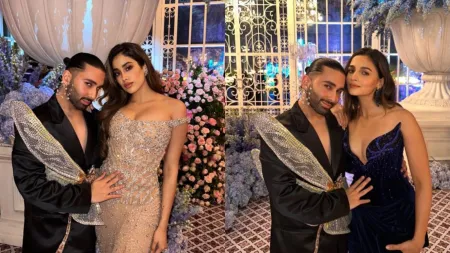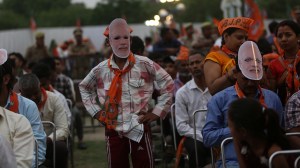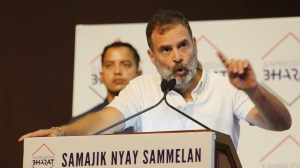- India
- International
‘I want to express romance in my way’
Deepak Dobriyal talks about his desire to play a romantic lead and how he prepares for roles
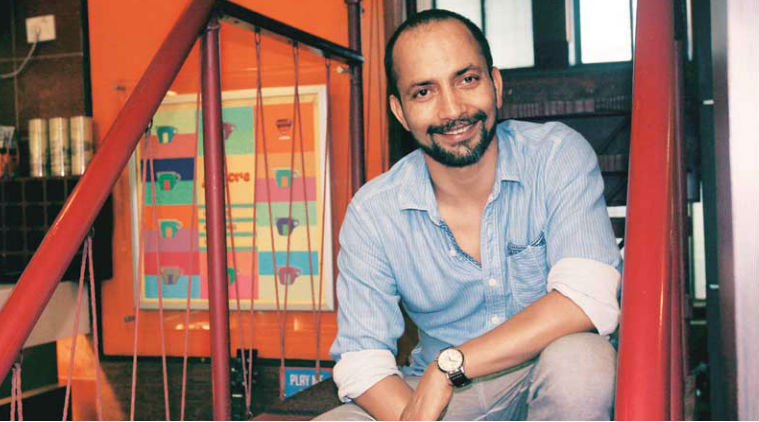 Deepak Dobriyal: When I moved to films, I thought I would continue to get significant roles. But I was told I did not have a “hero-like” body and was offered bit roles.
Deepak Dobriyal: When I moved to films, I thought I would continue to get significant roles. But I was told I did not have a “hero-like” body and was offered bit roles.
The audience loved your character Pappi in Tanu Weds Manu Returns (TWMR). What kind of feedback have you been getting?
The response has been amazing. Though I always do my work sincerely, the reach of TWMR has been very wide. People have been talking about the film’s dialogues so much on social media that it feels like I am re-reading the script on Twitter. People have been calling me from cinema halls after watching the movie and making me speak to their family. The other day, someone from a radio channel was telling me that when they get a good query, they respond with: “You are a good question.”
Pappi is a chatterbox while his friend Manu is largely taciturn. What kind of rapport do you share with actor R Madhavan who plays Manu?
He is like a brother to me and allows me the space to act. After the movie’s initial screening, he was the first person to praise my performance. In the film, Maddy bhai’s silence speaks a lot — first, his wife left him in a mental asylum, and then he is infatuated with another girl. In such a scenario, Pappi becomes his conscious-keeper. But you appreciate Pappi’s chatter only because his character speaks with silence.
Did you approach the role differently for the sequel?
I chose to explore the moments that the sequel presented without disturbing the emotional connect of the story. When Himanshu Sharma writes a script, he creates a solid base for the actors to work on. I usually read a script a couple of times and then gradually, the characters start speaking to me. Then you sense their emotions. I often reach the sets two hours early to soak in the ambience. When I was in theatre, we would rehearse regularly. Today, I study real life to get into the skin of a character.
With TWMR, you are back as a popular supporting actor.
The Sunday after the movie’s release, I got many calls from producers. It was a great feeling, especially since I had gone through a bad phase after an accident in 2013. During the shooting of Lollypop Since 1947, a political satire, I almost lost vision in my left eye. I was depressed and did not work for nearly a year-and-a-half. I managed to come out of it last year when I bagged a role in Prem Ratan Dhan Payo and began shooting for it. It was followed by TWMR’s shoot last December.
You left your native village in Uttarakhand at the age of five. How often do you go back?
After we moved to Delhi, where my father worked at the Indian Statistical Institute, we used to visit our village during summer vacations. Once I moved to Mumbai, my visits became infrequent. I last visited my village during the shoot of Bela Negi’s film Daayen Ya Baayen. We have our ancestral home there. Once I start earning more and getting good roles regularly, I hope to set up a farmhouse there and spend six months in the village farming. I also want to open art centres across the Garhwal region to showcase theatres and art.

You began your career with theatre. What drew you to it?
When I was in Class XI, I got a chance to act in the play Bakri that my seniors at school were performing at Mandi House, Delhi. Arvind Gaur of Asmita liked my work and I started acting in his plays. Before shifting to Mumbai in 2002, I had acted in nearly 40 plays, including Girish Karnad’s Tughlaq, Dario Fo’s Accidental Death of an Anarchist and Mahesh Dattani’s Final Solution. I chose to study BA through correspondence so I could get a degree without compromising on my work. My father was sceptical — he wanted me to apply for a government job — but my mother was supportive.
What made you shift to Mumbai?
I was 26 and hardly earning anything. Moving to Mumbai in search of work seemed like an obvious option. I borrowed Rs 5,000 from my father and reached Mumbai with two friends who said that money should never come in the way of our friendship. But within a month of reaching the city, we fought and parted ways. I must have changed 20 houses in four years.
How difficult was it to break into films?
In theatre, you need to have the conviction more than physical presence. When I moved to films, I thought I would continue to get significant roles. But I was told I did not have a “hero-like” body and was offered bit roles. My first break came with Vishal Bhardwaj’s Maqbool (2004). It was a no-dialogue part as Irrfan Khan’s bodyguard. When it released, my father had told his colleagues and relatives to watch the film. They were very unimpressed with my brief role. Even though I shot for Gulaaal (2009) before Omkara (2006), the latter released first. When Omkara released, my father watched it alone. Then he told everyone that I have finally got a proper role and goaded them to watch it. I also relaxed after Omkara released. For nearly a year after that, I took it easy and the first movie I signed after that was 13B with Madhavan.
Is Pappi the most popular character that you have played?
A lot of young filmmakers’ favourite is Bhati of Gulaal. While the audience loved Pappi, many call me Genda bhaiya after Dabangg 2. I am happy that people know me because of the characters I play.
You lost Kareena Kapoor in Omkara and don’t get the girl in TWMR. Do you want to play a romantic character?
Yes, definitely. Some people think I would be terrific in such a role. The accepted idea about a romantic hero in Bollywood requires the lover to be macho. I want to express romance in my way.
Click for more updates and latest Bollywood news along with Entertainment updates. Also get latest news and top headlines from India and around the world at The Indian Express.
Photos
Apr 25: Latest News
- 01
- 02
- 03
- 04
- 05




















